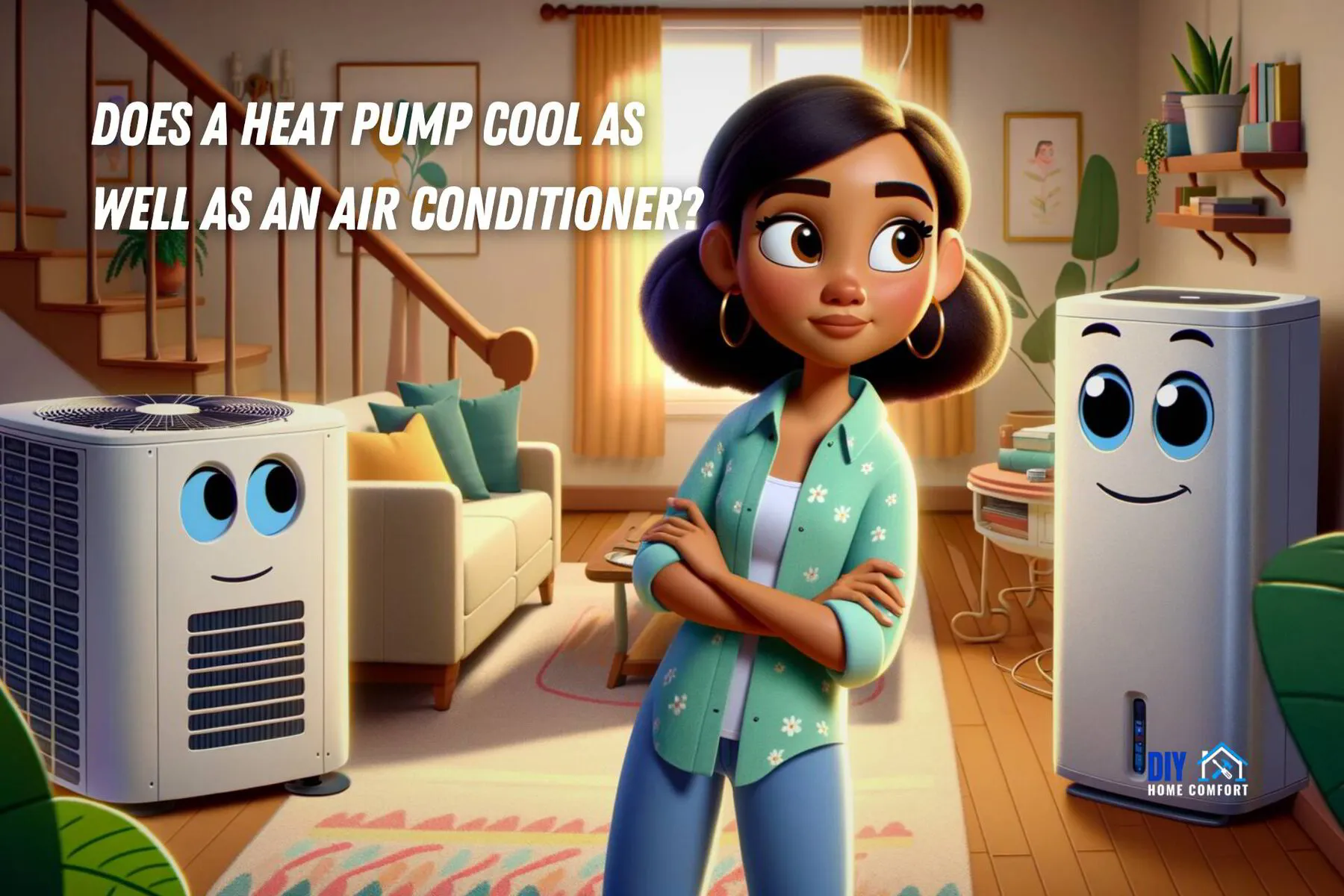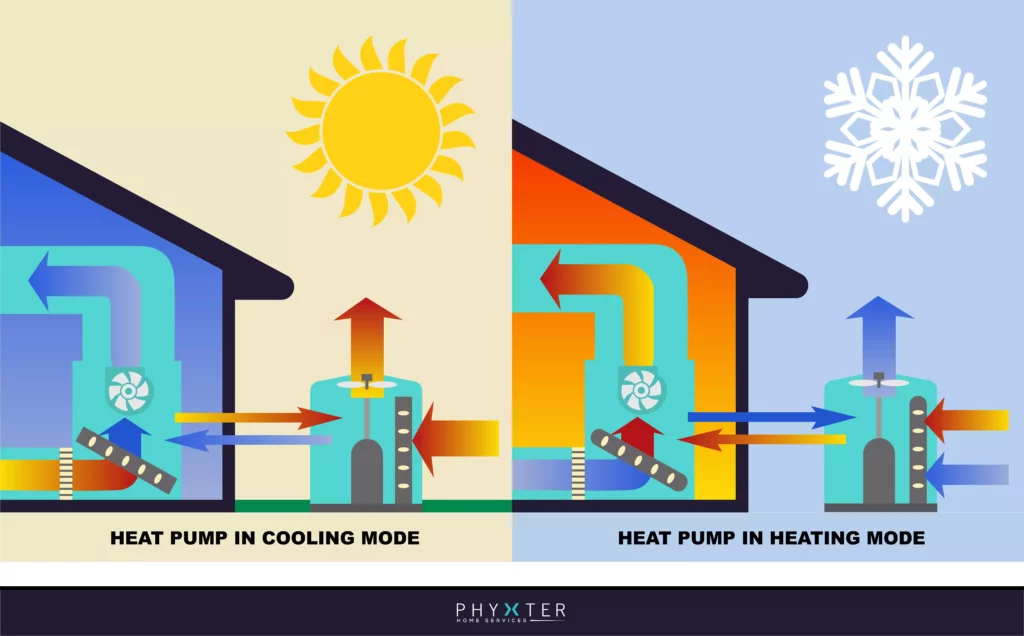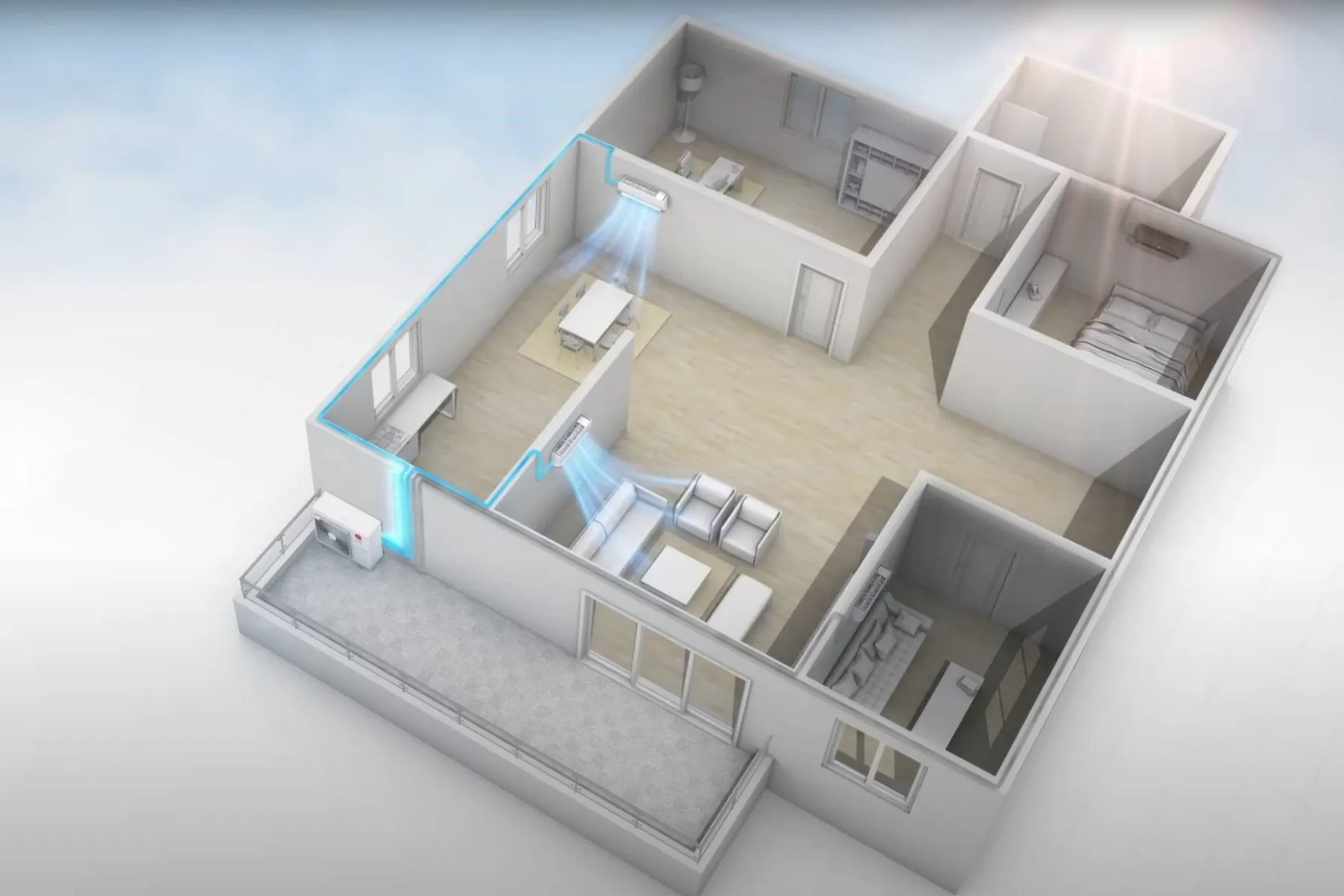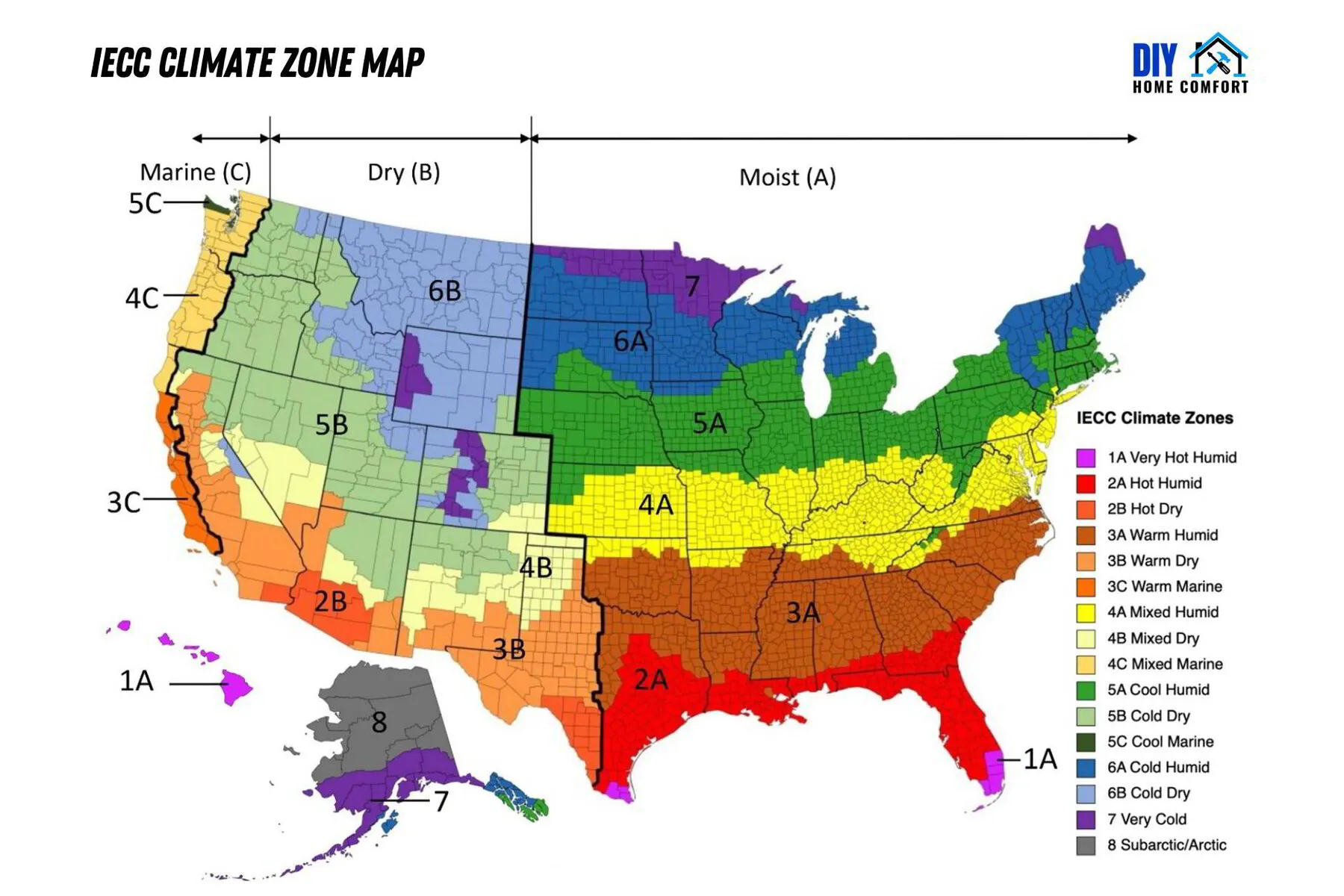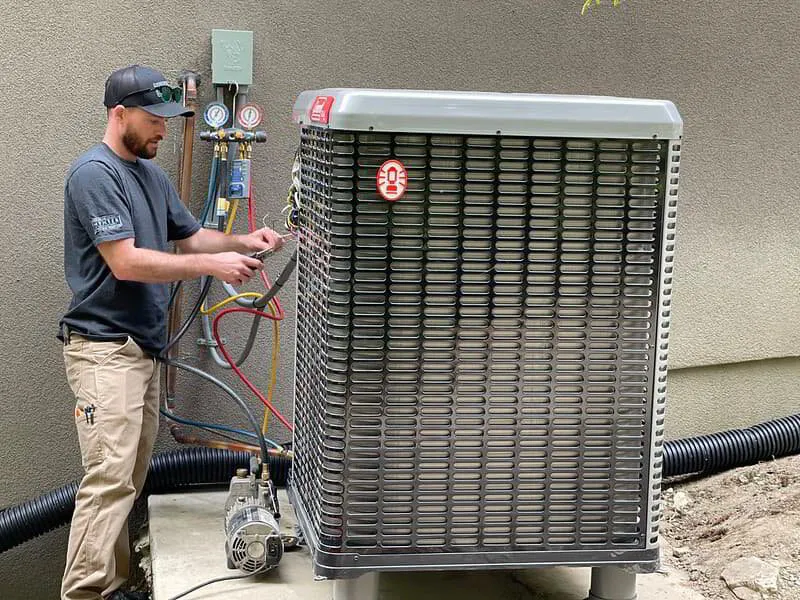In the quest to maintain a comfortable home environment, homeowners often ponder, "Does a heat pump cool as well as an air conditioner?" This article aims to thoroughly compare heat pumps and traditional air conditioners, focusing on their efficiency and versatility.
As we explore the intricacies of both systems, we'll delve into aspects such as cooling capabilities, energy consumption, and suitability for different climates. This comprehensive analysis is designed to guide homeowners in making an informed decision about the best home cooling solution.
Join us as we unravel the mysteries of these two popular cooling systems, backed by expert insights and credible research. Whether you're building a new home or upgrading your existing setup, this article promises to enlighten you on the most efficient and cost-effective ways to stay cool.
📘 Key Takeaways
- Cooling Efficiency: Heat pumps and air conditioners offer similar cooling efficiency, using comparable refrigeration cycles and achieving similar SEER ratings.
- Versatility of Heat Pumps: Unlike air conditioners, heat pumps provide both cooling and heating, making them a versatile choice for year-round climate control.
- Initial Investment and Long-Term Savings: Heat pumps generally have a higher initial cost than air conditioners but can offer long-term energy savings, especially in moderate climates.
- Advanced Technologies: Innovations like variable speed compressors and smart thermostat compatibility enhance the efficiency and user experience of heat pumps.
- Climate Considerations: The effectiveness of heat pumps varies across different climate zones, with their performance in humidity management being a key factor in choosing between a heat pump and an air conditioner.
What is a Heat Pump?
Image courtesy of Phyxter Home Services
A heat pump is an HVAC system that can both heat and cool a space, making it highly versatile. Its operation hinges on key components: the compressor, condenser coils, evaporator coils, and the crucial reversing valve.
The compressor moves refrigerant gas through the system, which in cooling mode absorbs heat from indoors and releases it outside via the condenser coils. The reversing valve alters the refrigerant flow for heating, enabling the system to draw heat from outside air and transfer it indoors through the evaporator coils.
This dual functionality, especially the ability to reverse the heating and cooling cycle, differentiates heat pumps from traditional air conditioners, which only cool. Air conditioners use similar components but lack the reversing valve, limiting them to cooling.
Heat pumps come in various types, each utilizing the same fundamental principles but differing in heat extraction or dissipation source.
These include:
Air Source Heat Pumps: These systems extract heat from the outdoor air, serving for both heating and cooling purposes. They are well-suited for regions with moderate climates.
Geothermal Heat Pumps (Ground Source Heat Pumps): Utilizing the earth's stable temperature, geothermal heat pumps offer highly efficient heating and cooling solutions. They are particularly ideal for areas with consistent temperature conditions.
Water-Source Heat Pumps: These systems provide a dependable heating and cooling solution by exchanging heat with a water source like a nearby lake or well.
The versatility and adaptability of heat pumps make them highly effective in regions characterized by variable climates. They efficiently offer heating and cooling capabilities within a single integrated system tailored to specific environmental conditions.
Heat Pump vs. Air Conditioner: Cooling Efficiency
Similarities in Cooling Efficiency
When comparing the cooling efficiency of heat pumps and air conditioners during summer, it's important to note that both systems exhibit comparable performance.
This similarity is primarily due to the fact that they operate on the same basic refrigeration cycle, which involves the compression, condensation, expansion, and evaporation of refrigerant to transfer heat.
Energy Efficiency Ratings
In terms of energy efficiency, both heat pumps and air conditioners can achieve similar Seasonal Energy Efficiency Ratio (SEER) ratings. Modern air conditioning units of both types often range from SEER ratings of 13 to over 20, indicating high efficiency in converting energy into cooling power.
Cooling Performance in Summer
This means that in the summer months, when the primary function is cooling, both systems are equally adept at maintaining comfortable indoor temperatures with similar energy consumption levels.
Versatility and Additional Functionality
The distinction between the two systems becomes more apparent in their versatility rather than their summer efficiency.
While air conditioners are designed solely for cooling, heat pumps offer the added advantage of being able to reverse their operation for heating purposes. However, this additional functionality does not detract from their ability to cool efficiently.
Making the Right Choice
During summer, homeowners can expect similar cooling efficiency levels from heat pumps and air conditioners. Therefore, the choice between the two should be based on other factors, such as the need for heating capabilities, initial installation costs, and personal preferences for the cooling system type.
Understanding that both systems provide comparable cooling efficiency can help make an informed decision tailored to individual needs and climate conditions.
Cost and Longevity Considerations
Initial Investment Comparison
The initial investment and long-term financial implications are critical when deciding between a heat pump installation and an air conditioner. Initially, heat pumps generally command a higher price than traditional air conditioners. This increased cost is due to their dual functionality of heating and cooling.
Cooling Performance in Summer
This means that in the summer months, when the primary function is cooling, both systems are equally adept at maintaining comfortable indoor temperatures with similar energy consumption levels.
Long-Term Energy Savings
However, the long-term energy savings potential of heat pumps can offset this upfront investment, especially in regions with moderate climates where their efficiency is maximized.
Lifespan and Durability
In terms of longevity, both systems have comparable lifespans, typically ranging between 15 to 20 years, depending on the quality of the unit and adherence to regular maintenance.
Considerations for Continuous Operation
The continuous operation of heat pumps throughout the year for heating and cooling can lead to more frequent wear and tear than air conditioners, primarily used only in warmer months. This factor might necessitate earlier replacement or more frequent repairs for heat pumps.
Evaluating Efficiency and Cost-Effectiveness
Despite this, the potential for energy savings with heat pumps, particularly in areas with milder winters, can be significant.
They can operate more efficiently than air conditioners and furnaces in moderate conditions, reducing energy bills. This efficiency makes them an attractive option for minimizing their long-term energy costs.
Making an Informed Decision
While the initial cost of a heat pump is higher, its energy-saving potential and dual functionality offer financial benefits in the long run. Homeowners should consider both the upfront costs, the expected lifespan, and the potential energy savings to make a cost-effective decision between a heat pump and an air conditioner.
Advanced Technologies in Heat Pumps
The landscape of heat pump technology has been revolutionized by several advanced innovations, notably variable speed compressors, and smart thermostat compatibility.
These advancements significantly enhance the cooling efficiency, operational cost-effectiveness, and overall competitiveness of heat pumps compared to traditional air conditioners.
Variable Speed Compressors
Variable speed compressors are a game-changer in heat pump technology. Unlike traditional compressors that operate at full capacity whenever they're on, variable-speed compressors can adjust their output to match the specific cooling needs of the moment.
This adaptability improves the efficiency of heat pumps and reduces energy consumption, leading to lower electricity bills. Additionally, it contributes to a more consistent indoor temperature and reduces strain on the system, potentially extending the unit's lifespan.
Smart Thermostats
Smart thermostat compatibility further elevates the functionality of heat pumps. These thermostats allow for precise control over the heating and cooling cycles, optimizing energy use based on real-time data and user preferences.
They can learn a household's patterns and adjust settings accordingly, ensuring efficient operation and additional cost savings. Moreover, integrating smart home systems allows users to control their heat pumps remotely, enhancing user experience and efficiency.
These technological advancements position heat pumps as a more attractive option than traditional air conditioners, especially for those seeking cutting-edge, energy-efficient home cooling solutions.
By embracing these innovations, heat pumps match the cooling efficiency of air conditioners and offer enhanced features that promote energy savings and user convenience.
Heat Pump Efficiency Across IECC Climate Zones in the US.
Image courtesy of Energy.Gov
When evaluating the efficiency of heat pumps across the diverse International Energy Conservation Code (IECC) climate zones in the United States, it's essential to consider not only temperature variations but also humidity levels.
1. Mild and Humid Climates (Zones 1-3):
Heat pumps are efficient for cooling in these warmer regions, which include much of the southern United States. However, their performance in managing high humidity is a crucial factor.
Traditional air conditioners often outperform heat pumps in these areas, especially during hot summers, due to their superior ability to remove moisture from the air. Homeowners in these zones might prefer air conditioners for a more comfortable indoor environment.
2. Moderate Climates (Zones 4-5):
Covering a large portion of the US, these zones experience a more balanced range of temperatures and moderate humidity levels. In these conditions, heat pumps maintain excellent efficiency and can effectively manage both temperature and humidity, making them a strong contender for year-round comfort.
3. Colder and Less Humid Climates (Zones 6-8):
The northern zones pose a different challenge for heat pumps due to colder temperatures rather than humidity concerns.
While traditional heat pumps may struggle in extreme cold, advancements like cold-climate heat pumps have significantly improved their efficiency in these regions. They can extract heat from very cold air, but supplementary heating systems might still be necessary during the coldest spells.
Heat pumps can be an efficient heating and cooling option in all IECC climate zones, but their effectiveness in humidity management varies.
In high-humidity areas with hot summers, air conditioners might be a better choice, while in moderate and colder climates, heat pumps, especially newer models, offer a highly efficient solution.
Supplemental Heating Solutions
Supplemental heating solutions like heat strips can be used in colder climates where heat pumps may not be as efficient. These electric resistance heaters provide additional heat and warm air even when outdoor temperatures are too low for the heat pump to operate efficiently.
This ensures consistent indoor warmth but can increase energy usage, potentially offsetting some of the heat pump's efficiency advantages.
The local climate should inform the decision between a heat pump and an air conditioner, considering factors like temperature extremes, humidity levels, and the need for supplemental heating.
Key Maintenance Tips
For homeowners, routine maintenance tasks include:
- Filter Cleaning and Replacement: Regularly clean or replace air filters to prevent airflow blockages, which can strain the system and reduce efficiency.
- Coil Cleaning: Both the evaporator and condenser coils should be kept clean. Dirt and debris on coils can hinder heat absorption and release, impacting the system's efficiency.
- Checking Thermostat Settings: Ensure that the thermostat works correctly and accurately reflects the desired temperature settings for optimal performance.
- Inspecting Ductwork: Regularly inspect ductwork for leaks or blockages, which can significantly reduce system efficiency.
Professional Servicing
In addition to these homeowner tasks, professional servicing is recommended at least once a year. A qualified technician can perform more complex maintenance tasks such as checking refrigerant levels, inspecting electrical components, and ensuring all parts are in good working order.
This professional assessment can identify and rectify potential issues before they become major problems, ensuring the system operates at peak efficiency and preventing costly repairs down the line.
Conclusion
This comprehensive exploration underscores the efficiency and versatility of a heat pump system, especially when compared to traditional air conditioners.
We've delved into their mechanisms, the impact of climate on system choice, advanced technological enhancements, and the importance of regular maintenance.
DIY Home Comfort prides itself on offering in-depth, knowledgeable insights into modern home HVAC solutions, guiding homeowners through informed decisions. We encourage our readers to delve further into our collection of articles for more valuable information on optimizing home comfort systems.
This article, backed by authoritative sources, reflects our commitment to thorough research and credible information, ensuring you have the most reliable guidance for your home's HVAC needs.
Scott Harding
Scott is the main author of DIY Home Comfort. He's also an experienced HVAC technician that enjoys home renovation and spending time with his family. You can find out more about him here.
